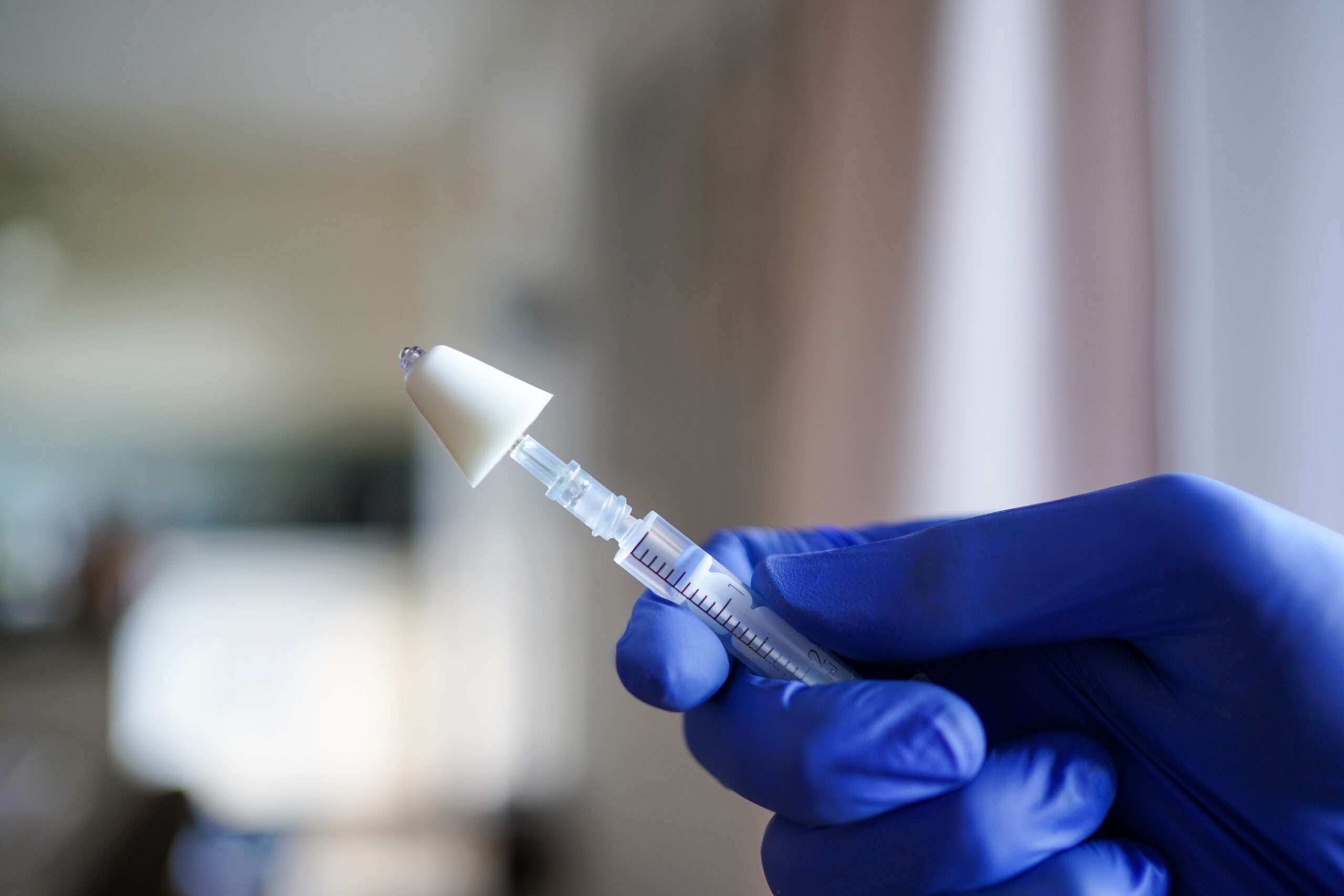Advancements have been made in the past several years when it comes to helping people who struggle with substance use disorder. In fact, it can be difficult to keep up with what new products and techniques are available to help treat addiction. Some people ask the question “Can Narcan be used for alcohol?” In this article, we explore what Narcan is used for and how a person can get help for alcohol addiction.
What Is Narcan?
Narcan is the brand name for a prescription drug product used to help treat someone who has overdosed on opioids. It contains the drug naloxone, which is an opioid antagonist and is manufactured in the form of a nasal spray. Narcan should be used on a person who is known to or is suspected of having overdosed on an opioid drug. Someone in this condition will appear to be sleepy or passed out and unable to respond. They will also experience breathing difficulties.
EMS and other medical technicians often carry Narcan in order to treat patients who have overdosed on an opiate drug. The medication was approved to be obtained by prescription for use by the general public in order to help reduce the number of injuries and death that can happen with an overdose. Friends and family members of someone who struggles with opioid addiction can carry Narcan with them in case of an emergency need to use it.
Narcan is used to treat overdoses on drugs that include:
Using Narcan alone is not enough to treat someone who has overdosed. Its usage provides a window of time to try to keep them safe while someone gets the person the immediate emergency treatment they need.
Can Narcan Be Used for Alcohol Overdoses?
Can Narcan be used for alcohol overdoses or alcohol poisoning? No, it cannot. Where people often make a mistake is confusing Narcan with a medication called Naltrexone. Naltrexone, an FDA-approved medication, is often used in the treatment of addiction to opioids and alcohol. Treatment facilities can give patients Naltrexone to help block the sedative effects they typically experience when using alcohol or opioids. In turn, this result greatly reduces a person’s cravings to use either substance.
Signs of an Opiate Overdose
Someone who has overdosed on opiate drugs will exhibit signs of it. These include the following symptoms:
- Extreme sleepiness
- Unconscious
- Difficulty speaking or thinking
- Limp body
- Shallow breathing
- Slow or erratic pulse
- Making choking sounds
- Vomiting
- Small pupils
- Blue skin, lips, or fingernails
Signs of Alcohol Addiction
When a person develops an addiction to alcohol, they will exhibit signs and symptoms. Common ones include:
- Needing to drink daily or several times a week
- Drinking alone
- Preferring social engagements that involve drinking
- Frequent hangovers
- Mood swings when drinking, sometimes including angry or violent episodes
- Using alcohol to self-medicate feelings like anxiety, depression, or anger
- Changes in weight
- Eating too much or too little
- Experiencing withdrawal symptoms when not drinking or cutting back on drinking
- Trying to stop drinking but being unable to do so
- Hiding alcohol usage
- Denying that alcohol consumption negatively impacts a person’s life
- Drinking interferes with work, school, or personal relationships
- Family history of alcoholism
If someone is unsure if they meet the definition of someone with an alcohol use disorder, they can get a diagnosis. Doctors and other medical professionals can perform an assessment that determines if someone has crossed the line to becoming an alcoholic. From there, a treatment plan can be made in order to help the person stop drinking.
How is Alcohol Addiction Treated?
Once someone reaches the point of becoming addicted to alcohol, they will need professional help to become sober permanently. Treatment for alcohol addiction begins with going to a detox program. This vital first step usually lasts from five to seven days and allows the person to release the toxins built up that keep them physically craving alcohol. The next step will include either residential or outpatient care. If someone needs focused care while living in a facility, they can use a residential treatment program. When a person reaches the stage of not needing to live on-site at a program, they can take advantage of several types of outpatient treatment.
Buckhead Behavioral Health offers many levels of outpatient care including the following:
- Detox
- Outpatient Program (OP)
- Intensive Outpatient Program (IOP)
- Virtual IOP
- Evening IOP
- Partial Hospitalization Program (IOP)
- 90-Day Program
Can Narcan be used for alcohol rehab? No, but plenty of other options make becoming sober for life within everyone’s reach. We offer several types of therapy that help people learn to understand their addiction and how to conquer it. We also provide medications that can minimize withdrawal symptoms and cravings to start drinking again.
Get Treatment for Alcohol Addiction Today
Buckhead Behavioral Health understands how vital it is to get professional help when you have an addiction to alcohol. For this reason, we created a program specifically to treat people with alcoholism. We offer detox and outpatient programs that provide the medical and psychological support necessary to stop drinking for good. We determine the level of care you need, which can include evening and virtual sessions for those who qualify.
If you know that it’s time to deal with your alcoholism and get sober, visit our admissions page now. The help you deserve is just a phone call away.







